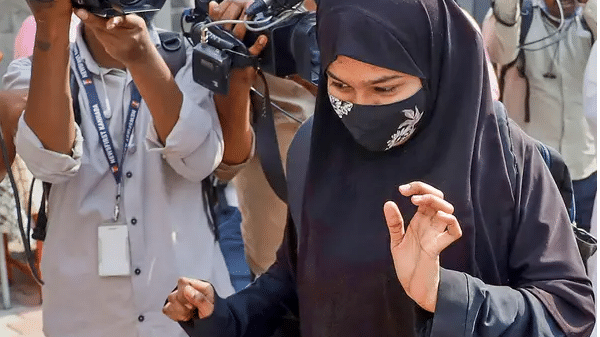Aliya Assadi, a
17-year-old girl from Karnataka, never shies away from a fight. A state-level
karate champion, Assadi has become one of the faces of a movement to get
educational institutions in Karnataka allow the hijab. One of the six
petitioners who are fighting the court battle, Assadi has written to Karnataka
CM Basavaraj Bommai that he still has the chance to “stop our future from
getting ruined.”
“You can make a
decision to allow us to write exams wearing hijab. Please consider this. We are
the future of this country,” Assadi tweeted tagging Chief Minister Basavaraj
Bommai. The tweet comes with the exams scheduled to start from April 22. The
ban on the hijab is making several Muslim women students jittery as for some of
them, not wearing the hijab in public is not really an option.
Last month, the
Karnataka High Court had dismissed petitions seeking permission to wear the hijab.
The court had said that wearing the hijab is not an essential practice of Islam
and that educational institutions should follow a uniform dress-code.
The petitioners
have not moved the Supreme Court which has denied to take up the challenge to
the high court order as an urgent matter.
Also Read | What is Essential Religious Practices test?
Since the high
court ruling, young Muslim women from Karnataka have often decided to not sit
for exams. In March, 40 Muslim girls decided against sitting for exams because
they said they were hurt by the high court order. The same girls had also boycotted
their practical examinations.
When the Karnataka
High Court was adjudicating upon the question of the hijab, the court attempted
to answer four questions: Whether the hijab was integral to Islam, the contest
between a uniform and fundamental rights, whether uniforms were discriminatory
and if teachers have been harassing students.
Also Read | Karnataka hijab row: What Indian courts have said on the headscarf
To the first
question, the court ruled that the hijab was not an “essential religious
practice” in Islam. “Wearing of the hijab by Muslim women does not form a part
of essential religious practice in the Islamic faith,” the court ruled.
On the question of
whether the ban on the hijab violated a fundamental right, the court ruled that
a school uniform is a reasonable restriction on fundamental rights. The court
also held that “the government has power to issue the order banning clothes
that could disturb peace, harmony and public order and no case is made out for
its invalidation.”







